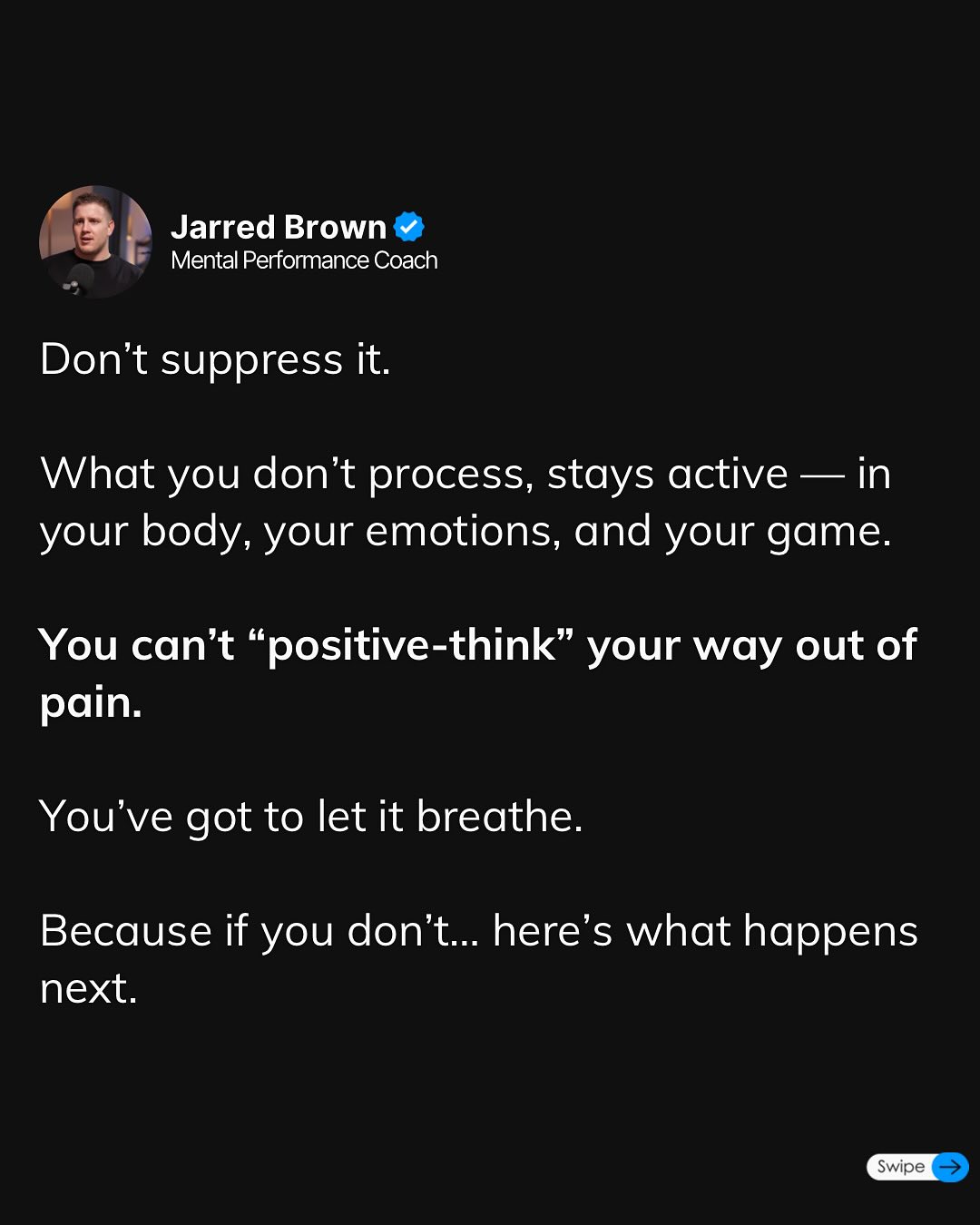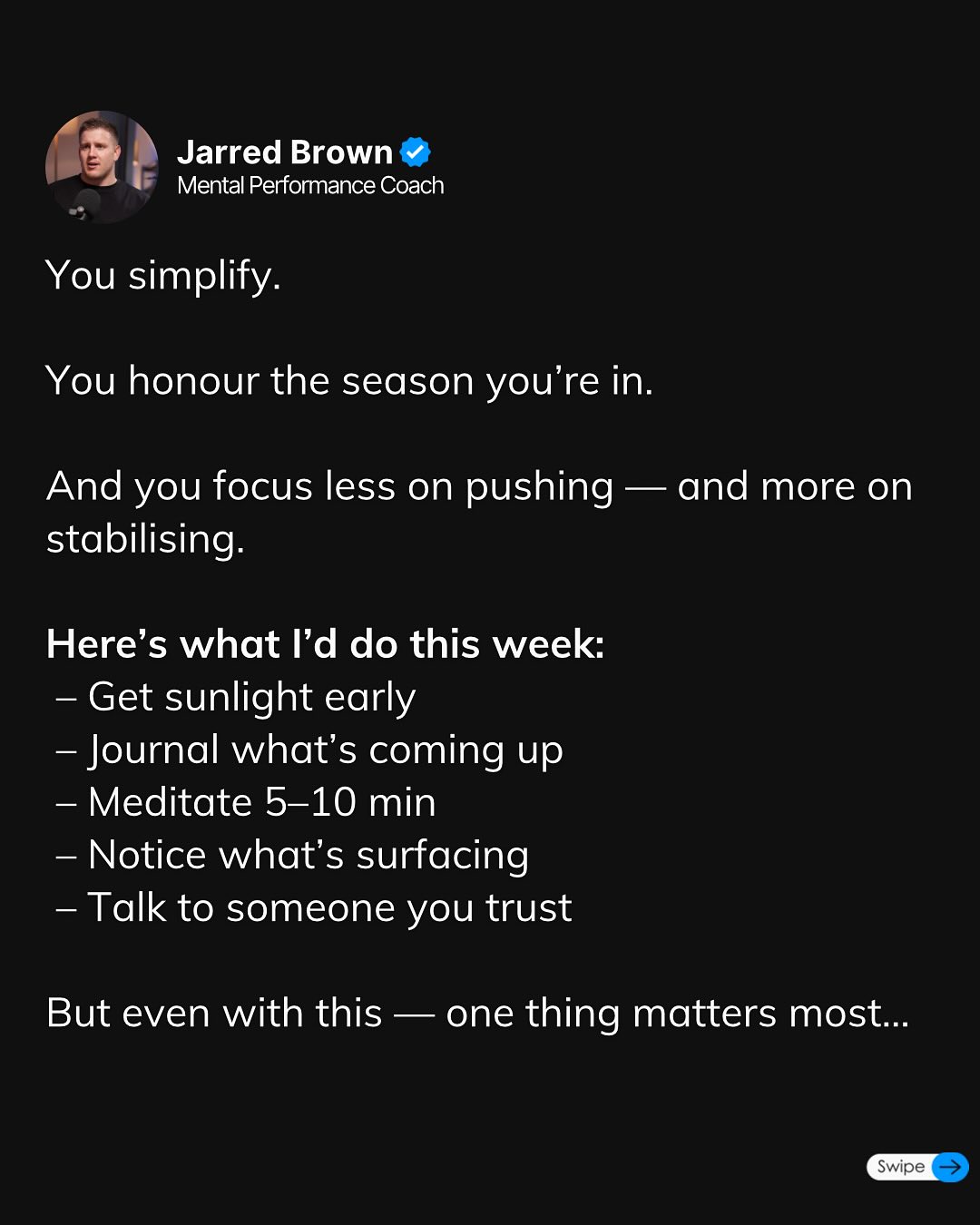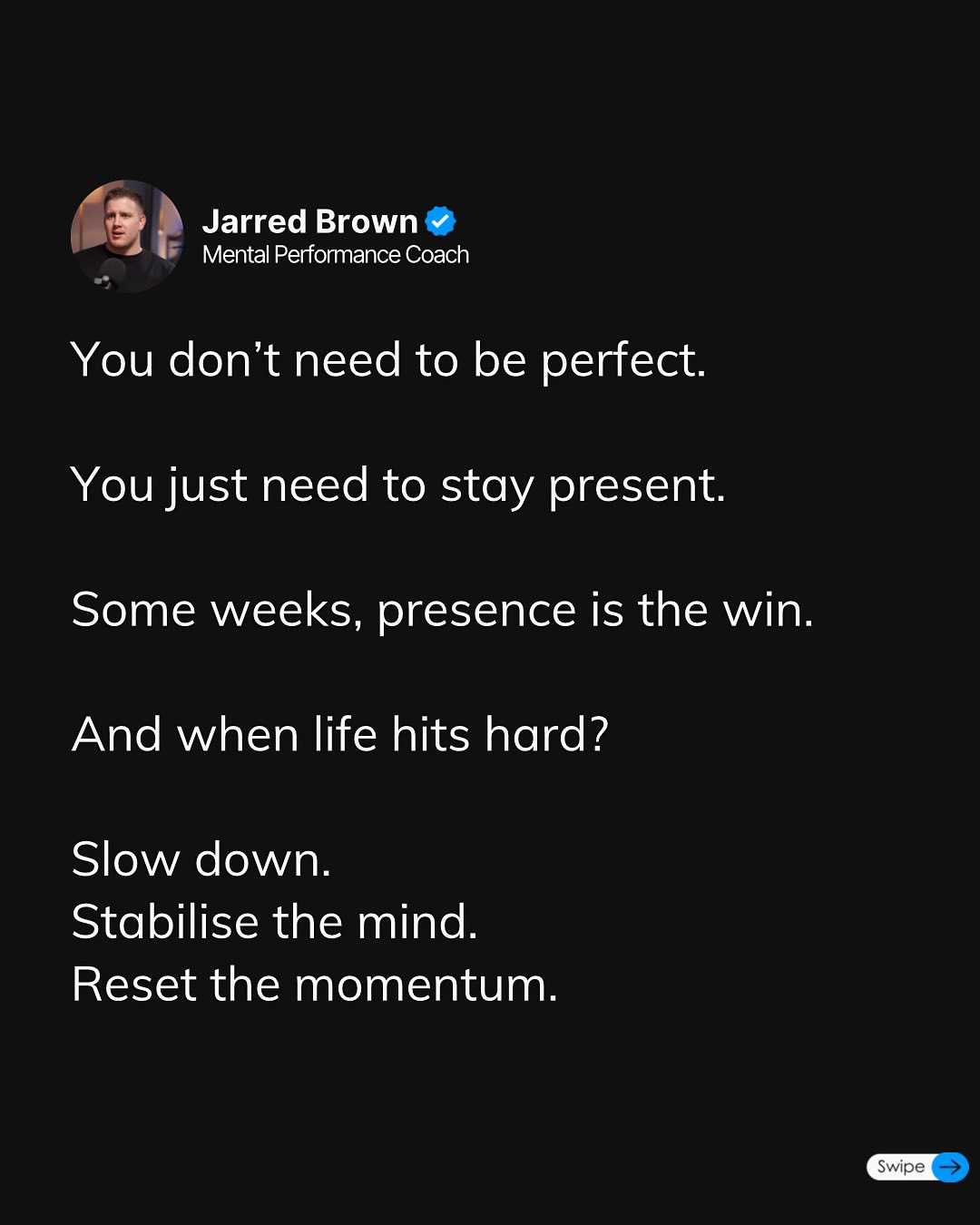Navigating Personal Challenges As An Athlete
Effective mental coaching tips from Jarred Brown to triumph over personal challenges now!

Image: Instagram
Jarred Brown, a renowned mental skills coach, recently opened up about handling heavy personal challenges that can affect an athlete’s performance. In his recent message, he addresses a common question from a client grappling with personal struggles that spill over into training, emphasizing that what we suppress continues to echo in our lives. Brown’s straightforward advice underscores that athletes cannot simply push pain aside or rely solely on positive thinking. Instead, he believes in acknowledging, processing, and then learning from those struggles.
Acknowledging The Struggle
The coach recalls a client’s inquiry: “I’ve had some heavy personal stuff come up. I usually push it to the back of my mind and just get on with it. But I can feel it starting to affect my performance. How do I deal with it?” Brown’s immediate response is one of empathy, urging athletes to recognize that ignoring feelings does not let them vanish. In his own words, “Diamonds are made in the rough,” a reminder that the current hardships can forge a stronger future self. By accepting that trying to box up emotions only creates resistance, Brown explains how these internal conflicts can infiltrate physical training, slowly chipping away at confidence and performance.
Simplify Your Approach
Instead of battling the turmoil head-on with brute force, Brown advises a step-by-step strategy. He suggests a reset that focuses more on consistency than intensity. His practical tips include:
• Getting sunlight early to reset the body’s clock
• Journaling to capture emerging thoughts and patterns
• Meditating for five to ten minutes to calm the nervous system
• Staying off autopilot and paying attention to what surfaces
• Reaching out to a professional for guidance
These steps, Brown clarifies, are less about masking pain and more about honoring the season an athlete is in. By simplifying one’s approach, the athlete can better stabilize their mind and reset momentum. This strategy of reducing complexity in training and life allows for a profound internal reset, paving the way for improved performance once the mental clutter clears.
Building A Resilient Mindset
Brown’s message resonates with a broader narrative in the athletic world, one echoed in his past social media posts. In an earlier Instagram update titled “From Fearing Everything To Playing With Flow,” he described how accepting even the worst-case scenario helped an athlete shift from constant worry to a focus on natural instinct. Another popular message, “The Difference That Makes The Difference,” detailed how clearing mental clutter—for instance, by stripping back extraneous drills and focusing on core performance cues—enabled athletes to compete confidently under pressure.
These principles are not unique to Brown’s coaching techniques. They underline a universal truth in sports: a clear, undistracted mind is often the bedrock of great performance. Athletes who learn to process their emotions rather than suppress them end up with a trusted mental blueprint. This blueprint helps them focus on measurable cues in their training routines rather than getting trapped in an overabundance of thoughts during crucial moments.
Brown’s approach calls for a shift from outcome-based targets to process-based cues. Instead of obsessing over a desired score or specific stats, athletes are encouraged to rely on their internal flow state activators. Such cues serve as anchors, enabling them to remain calm and present during high-pressure situations. A common thread in his guidance is the idea that overthinking is counterproductive; attempting to force positivity or avoid thought entirely can inadvertently intensify anxiety.
Embracing Emotional Honesty
One crucial takeaway from Brown’s discussion is the importance of allowing oneself to feel. The notion that suppressing feelings only makes them persist is central to his coaching philosophy. By embracing rather than denying negative emotions, athletes can begin a constructive process of recovery. This emotional honesty not only aids in mental clarity but also has tangible effects on physical performance, reducing the slow burn of stress that can undermine training and competitive edge.
In today’s high-stakes athletic environment, where mental fortitude is as important as physical prowess, Brown’s insights are particularly timely. Social media followers of his coaching profiles have noted how similar mental reset techniques have helped them regain focus. The narrative of turning vulnerability into strength is one that resonates widely, providing both comfort and practical advice to those facing similar challenges.
Brown’s candid advice serves as a reminder that the journey through personal adversity is a part of athletic growth. Instead of viewing personal challenges as roadblocks, athletes can transform them into catalysts for developing resilience and deeper self-awareness.
Ultimately, the message is clear: when personal struggles threaten to derail performance, simplify your process, honor your feelings, and use consistent, mindful practices to reset your momentum. As Brown puts it, we must give ourselves permission to slow down and rebuild—one measured step at a time.
By shifting focus from avoiding difficulty to embracing and processing it, athletes not only improve their immediate performance but also lay the groundwork for long-term success. This balanced approach is the cornerstone of thriving both on and off the field.
Read full bio of Nisha Bharatan


























